- Home
- Edith Wharton
Artemis to Actaeon and Other Verse Page 3
Artemis to Actaeon and Other Verse Read online
Page 3
And leap like lightning to the clap of fate.
So greatly gave he, nurturing 'gainst the call
Of one rare moment all the daily store
Of joy distilled from the acquitted task,
And that deliberate rashness which bespeaks
The pondered action passed into the blood;
So swift to harden purpose into deed
That, with the wind of ruin in his hair,
Soul sprang full-statured from the broken flesh,
And at one stroke he lived the whole of life,
Poured all in one libation to the truth,
A brimming flood whose drops shall overflow
On deserts of the soul long beaten down
By the brute hoof of habit, till they spring
In manifold upheaval to the sun.
Call here no high artificer to raise
His wordy monument--such lives as these
Make death a dull misnomer and its pomp
An empty vesture. Let resounding lives
Re-echo splendidly through high-piled vaults
And make the grave their spokesman--such as he
Are as the hidden streams that, underground,
Sweeten the pastures for the grazing kine,
Or as spring airs that bring through prison bars
The scent of freedom; or a light that burns
Immutably across the shaken seas,
Forevermore by nameless hands renewed,
Where else were darkness and a glutted shore.
II
THE MORTAL LEASE
I
BECAUSE the currents of our love are poured
Through the slow welter of the primal flood
From some blind source of monster-haunted mud,
And flung together by random forces stored
Ere the vast void with rushing worlds was scored--
Because we know ourselves but the dim scud
Tossed from their heedless keels, the sea-blown bud
That wastes and scatters ere the wave has roared--
Because we have this knowledge in our veins,
Shall we deny the journey's gathered lore--
The great refusals and the long disdains,
The stubborn questing for a phantom shore,
The sleepless hopes and memorable pains,
And all mortality's immortal gains?
II
Because our kiss is as the moon to draw
The mounting waters of that red-lit sea
That circles brain with sense, and bids us be
The playthings of an elemental law,
Shall we forego the deeper touch of awe
On love's extremest pinnacle, where we,
Winging the vistas of infinity,
Gigantic on the mist our shadows saw?
Shall kinship with the dim first-moving clod
Not draw the folded pinion from the soul,
And shall we not, by spirals vision-trod,
Reach upward to some still-retreating goal,
As earth, escaping from the night's control,
Drinks at the founts of morning like a god?
III
All, all is sweet in that commingled draught
Mysterious, that life pours for lovers' thirst,
And I would meet your passion as the first
Wild woodland woman met her captor's craft,
Or as the Greek whose fearless beauty laughed
And doffed her raiment by the Attic flood;
But in the streams of my belated blood
Flow all the warring potions love has quaffed.
How can I be to you the nymph who danced
Smooth by Ilissus as the plane-tree's bole,
Or how the Nereid whose drenched lashes glanced
Like sea-flowers through the summer sea's long roll--
I that have also been the nun entranced
Who night-long held her Bridegroom in her soul?
IV
"Sad Immortality is dead," you say,
"And all her grey brood banished from the soul;
Life, like the earth, is now a rounded whole,
The orb of man's dominion. Live to-day."
And every sense in me leapt to obey,
Seeing the routed phantoms backward roll;
But from their waning throng a whisper stole,
And touched the morning splendour with decay.
"Sad Immortality is dead; and we
The funeral train that bear her to her grave.
Yet hath she left a two-faced progeny
In hearts of men, and some will always see
The skull beneath the wreath, yet always crave
In every kiss the folded kiss to be."
V
Yet for one rounded moment I will be
No more to you than what my lips may give,
And in the circle of your kisses live
As in some island of a storm-blown sea,
Where the cold surges of infinity
Upon the outward reefs unheeded grieve,
And the loud murmur of our blood shall weave
Primeval silences round you and me.
If in that moment we are all we are
We live enough. Let this for all requite.
Do I not know, some winged things from far
Are borne along illimitable night
To dance their lives out in a single flight
Between the moonrise and the setting star?
VI
The Moment came, with sacramental cup
Lifted--and all the vault of life grew bright
With tides of incommensurable light--
But tremblingly I turned and covered up
My face before the wonder. Down the slope
I heard her feet in irretrievable flight,
And when I looked again, my stricken sight
Saw night and rain in a dead world agrope.
Now walks her ghost beside me, whispering
With lips derisive: "Thou that wouldst forego--
What god assured thee that the cup I bring
Globes not in every drop the cosmic show,
All that the insatiate heart of man can wring
From life's long vintage?--Now thou shalt not know."
VII
Shall I not know? I, that could always catch
The sunrise in one beam along the wall,
The nests of June in April's mating call,
And ruinous autumn in the wind's first snatch
At summer's green impenetrable thatch--
That always knew far off the secret fall
Of a god's feet across the city's brawl,
The touch of silent fingers on my latch?
Not thou, vain Moment! Something more than thou
Shall write the score of what mine eyes have wept,
The touch of kisses that have missed my brow,
The murmur of wings that brushed me while I slept,
And some mute angel in the breast even now
Measures my loss by all that I have kept.
VIII
Strive we no more. Some hearts are like the bright
Tree-chequered spaces, flecked with sun and shade,
Where gathered in old days the youth and maid
To woo, and weave their dances: with the night
They cease their flutings, and the next day's light
Finds the smooth green unconscious of their tread,
And ready its velvet pliancies to spread
Under fresh feet, till these in turn take flight.
But other hearts a long long road doth span,
From some far region of old works and wars,
And the weary armies of the thoughts of man
Have trampled it, and furrowed it with scars,
And sometimes, husht, a sacred caravan
Moves over it alone, beneath the stars.
EXPERIENCE
I
LIKE Cr
usoe with the bootless gold we stand
Upon the desert verge of death, and say:
"What shall avail the woes of yesterday
To buy to-morrow's wisdom, in the land
Whose currency is strange unto our hand?
In life's small market they had served to pay
Some late-found rapture, could we but delay
Till Time hath matched our means to our demand."
But otherwise Fate wills it, for, behold,
Our gathered strength of individual pain,
When Time's long alchemy hath made it gold,
Dies with us--hoarded all these years in vain,
Since those that might be heir to it the mould
Renew, and coin themselves new griefs again.
II
O Death, we come full-handed to thy gate,
Rich with strange burden of the mingled years,
Gains and renunciations, mirth and tears,
And love's oblivion, and remembering hate.
Nor know we what compulsion laid such freight
Upon our souls--and shall our hopes and fears
Buy nothing of thee, Death? Behold our wares,
And sell us the one joy for which we wait.
Had we lived longer, life had such for sale,
With the last coin of sorrow purchased cheap,
But now we stand before thy shadowy pale,
And all our longings lie within thy keep--
Death, can it be the years shall naught avail?
"Not so," Death answered, "they shall purchase sleep."
GRIEF
I
ON immemorial altitudes august
Grief holds her high dominion. Bold the feet
That climb unblenching to that stern retreat
Whence, looking down, man knows himself but dust.
There lie the mightiest passions, earthward thrust
Beneath her regnant footstool, and there meet
Pale ghosts of buried longings that were sweet,
With many an abdicated "shall" and "must."
For there she rules omnipotent, whose will
Compels a mute acceptance of her chart;
Who holds the world, and lo! it cannot fill
Her mighty hand; who will be served apart
With uncommunicable rites, and still
Surrender of the undivided heart.
II
She holds the world within her mighty hand,
And lo! it is a toy for babes to toss,
And all its shining imagery but dross,
To those that in her awful presence stand;
As sun-confronting eagles o'er the land
That lies below, they send their gaze across
The common intervals of gain and loss,
And hope's infinitude without a strand.
But he who, on that lonely eminence,
Watches too long the whirling of the spheres
Through dim eternities, descending thence
The voices of his kind no longer hears,
And, blinded by the spectacle immense,
Journeys alone through all the after years.
CHARTRES
I
IMMENSE, august, like some Titanic bloom,
The mighty choir unfolds its lithic core,
Petalled with panes of azure, gules and or,
Splendidly lambent in the Gothic gloom,
And stamened with keen flamelets that illume
The pale high-altar. On the prayer-worn floor,
By worshippers innumerous thronged of yore,
A few brown crones, familiars of the tomb,
The stranded driftwood of Faith's ebbing sea--
For these alone the finials fret the skies,
The topmost bosses shake their blossoms free,
While from the triple portals, with grave eyes,
Tranquil, and fixed upon eternity,
The cloud of witnesses still testifies.
II
The crimson panes like blood-drops stigmatise
The western floor. The aisles are mute and cold.
A rigid fetich in her robe of gold,
The Virgin of the Pillar, with blank eyes,
Enthroned beneath her votive canopies,
Gathers a meagre remnant to her fold.
The rest is solitude; the church, grown old,
Stands stark and grey beneath the burning skies.
Well-nigh again its mighty framework grows
To be a part of nature's self, withdrawn
From hot humanity's impatient woes;
The floor is ridged like some rude mountain lawn,
And in the east one giant window shows
The roseate coldness of an Alp at dawn.
TWO BACKGROUNDS
I LA VIERGE AU DONATEUR
HERE by the ample river's argent sweep,
Bosomed in tilth and vintage to her walls,
A tower-crowned Cybele in armoured sleep
The city lies, fat plenty in her halls,
With calm parochial spires that hold in fee
The friendly gables clustered at their base,
And, equipoised o'er tower and market-place,
The Gothic minister's winged immensity;
And in that narrow burgh, with equal mood,
Two placid hearts, to all life's good resigned,
Might, from the altar to the lych-gate, find
Long years of peace and dreamless plenitude.
II MONA LISA
Yon strange blue city crowns a scarped steep
No mortal foot hath bloodlessly essayed:
Dreams and illusions beacon from its keep.
But at the gate an Angel bares his blade;
And tales are told of those who thought to gain
At dawn its ramparts; but when evening fell
Far off they saw each fading pinnacle
Lit with wild lightnings from the heaven of pain;
Yet there two souls, whom life's perversities
Had mocked with want in plenty, tears in mirth,
Might meet in dreams, ungarmented of earth,
And drain Joy's awful chalice to the lees.
THE TOMB OF ILARIA GIUNIGI
ILARIA, thou that wert so fair and dear
That death would fain disown thee, grief made wise
With prophecy thy husband's widowed eyes,
And bade him call the master's art to rear
Thy perfect image on the sculptured bier,
With dreaming lids, hands laid in peaceful guise
Beneath the breast that seems to fall and rise,
And lips that at love's call should answer "Here!"
First-born of the Renascence, when thy soul
Cast the sweet robing of the flesh aside,
Into these lovelier marble limbs it stole,
Regenerate in art's sunrise clear and wide,
As saints who, having kept faith's raiment whole,
Change it above for garments glorified.
THE ONE GRIEF
ONE grief there is, the helpmeet of my heart,
That shall not from me till my days be sped,
That walks beside me in sunshine and in shade,
And hath in all my fortunes equal part.
At first I feared it, and would often start
Aghast to find it bending o'er my bed,
Till usage slowly dulled the edge of dread,
And one cold night I cried: How warm thou art!
Since then we two have travelled hand in hand,
And, lo, my grief has been interpreter
For me in many a fierce and alien land
Whose speech young Joy had failed to understand,
Plucking me tribute of red gold and myrrh
From desolate whirlings of the desert sand.
THE EUMENIDES
THINK you we slept within the Delphic bower,
What time our victim sought Apollo's grace?
N
ay, drawn into ourselves, in that deep place
Where good and evil meet, we bode our hour.
For not inexorable is our power.
And we are hunted of the prey we chase,
Soonest gain ground on them that flee apace,
And draw temerity from hearts that cower.
Shuddering we gather in the house of ruth,
And on the fearful turn a face of fear,
But they to whom the ways of doom are clear
Not vainly named us the Eumenides.
Our feet are faithful in the paths of truth,
And in the constant heart we house at peace.
III
ORPHEUS
Love will make men dare to die for their beloved. . . Of this Alcestis is a monument . . . for she was willing to lay down her life for her husband . . . and so noble did this appear to the gods that they granted her the privilege of returning to earth . . . but Orpheus, the son of OEagrus, they sent empty away. . . --PLATO: The Symposium.
ORPHEUS the Harper, coming to the gate
Where the implacable dim warder sate,
Besought for parley with a shade within,
Dearer to him than life itself had been,
Sweeter than sunlight on Illyrian sea,
Or bloom of myrtle, or murmur of laden bee,
Whom lately from his unconsenting breast
The Fates, at some capricious blind behest,
Intolerably had reft--Eurydice,
Dear to the sunlight as Illyrian sea,
Sweet as the murmur of bees, or myrtle bloom--
And uncompanioned led her to the tomb.
There, solitary by the Stygian tide,
Strayed her dear feet, the shadow of his own,
Since, 'mid the desolate millions who have died,
Each phantom walks its crowded path alone;
And there her head, that slept upon his breast,
No more had such sweet harbour for its rest,
Nor her swift ear from those disvoiced throats
Could catch one echo of his living notes,
And, dreaming nightly of her pallid doom,
No solace had he of his own young bloom,

 The Age of Innocence
The Age of Innocence The Reef
The Reef Summer
Summer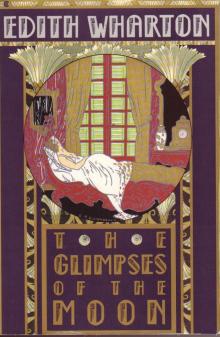 The Glimpses of the Moon
The Glimpses of the Moon Xingu
Xingu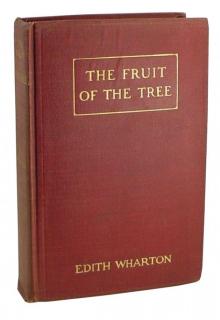 The Fruit of the Tree
The Fruit of the Tree Fast and Loose
Fast and Loose Artemis to Actaeon and Other Verse
Artemis to Actaeon and Other Verse The Line of Least Resistance
The Line of Least Resistance The Lamp of Psyche
The Lamp of Psyche The Reckoning
The Reckoning Afterward
Afterward The New York Stories of Edith Wharton
The New York Stories of Edith Wharton The 2014 Halloween Horrors Megapack
The 2014 Halloween Horrors Megapack 'Copy': A Dialogue
'Copy': A Dialogue The Recovery
The Recovery The Fulness of Life
The Fulness of Life Early Short Stories Vol. 1
Early Short Stories Vol. 1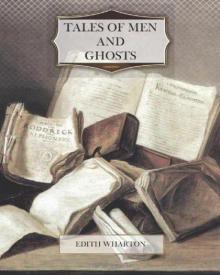 Tales of Men and Ghosts
Tales of Men and Ghosts The House of the Dead Hand
The House of the Dead Hand That Good May Come
That Good May Come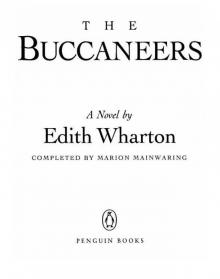 The Buccaneers
The Buccaneers Other Times, Other Manners
Other Times, Other Manners The Hermit and the Wild Woman
The Hermit and the Wild Woman Kerfol
Kerfol The Duchess at Prayer
The Duchess at Prayer Bunner Sisters
Bunner Sisters The Choice
The Choice Madame De Treymes
Madame De Treymes Ethan Frome, Summer, Bunner Sisters
Ethan Frome, Summer, Bunner Sisters In Morocco
In Morocco The Valley of Decision
The Valley of Decision Age of Innocence (Barnes & Noble Classics Series)
Age of Innocence (Barnes & Noble Classics Series) The Angel at the Grave
The Angel at the Grave April Showers
April Showers Sanctuary
Sanctuary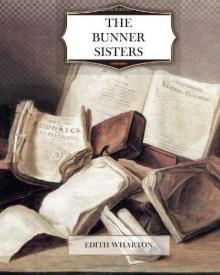 The Bunner Sisters
The Bunner Sisters Mrs. Manstey's View
Mrs. Manstey's View Writing a War Story
Writing a War Story The Custom of the Country
The Custom of the Country In Trust
In Trust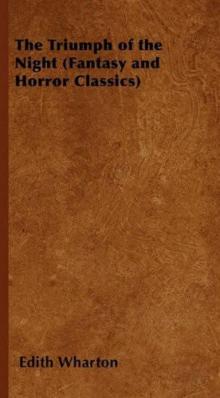 The Triumph of the Night
The Triumph of the Night The Hermit and the Wild Woman, and Other Stories
The Hermit and the Wild Woman, and Other Stories Roman Fever and Other Stories
Roman Fever and Other Stories The Mission of Jane
The Mission of Jane The Descent of Man and Other Stories
The Descent of Man and Other Stories Coming Home
Coming Home The Touchstone
The Touchstone Early Short Stories Vol. 2
Early Short Stories Vol. 2 Edith Wharton's Verse, 1879-1919, from various journals.
Edith Wharton's Verse, 1879-1919, from various journals.